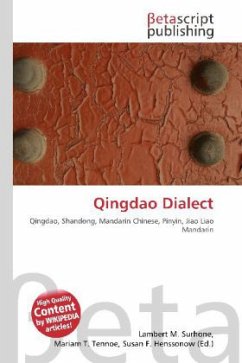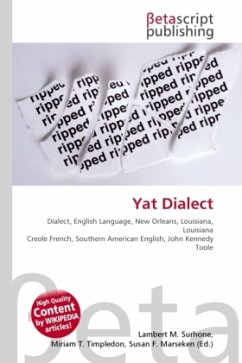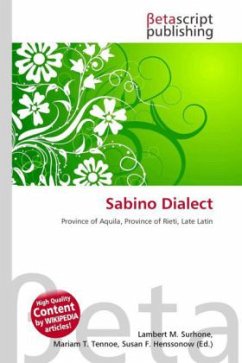Please note that the content of this book primarily consists of articles available from Wikipedia or other free sources online. Qingdao dialect is the local dialect of the city of Qingdao, in China''s Shandong Province. Often characterized as requiring a "fat tongue", the Qingdao dialect often adds a "th" sound to Mandarin''s "sh", "x", and "s". It also obliterates many Mandarin tones. The basic, though not at all universal rule for converting Putonghua to the Qingdao dialect in the pinyin system is that a Mandarin 1 tone will become a Qingdao 3, 2 becomes a 4, 3 becomes 1 and 4 remains four. Qingdao dialect''s 1 tone (Mandarin''s 3) also has a drawl to it. (the pinyin tones are: 1 2 3 4 ). There are other, somewhat random phonetic changes from Mandarin to the Qingdao dialect. Nearly all Qingdao natives can understand Mandarin, but they will often respond in the Qingdao dialect without realizing they are doing so. The Qingdao dialect is not necessarily standardized throughout Qingdao.
Bitte wählen Sie Ihr Anliegen aus.
Rechnungen
Retourenschein anfordern
Bestellstatus
Storno








